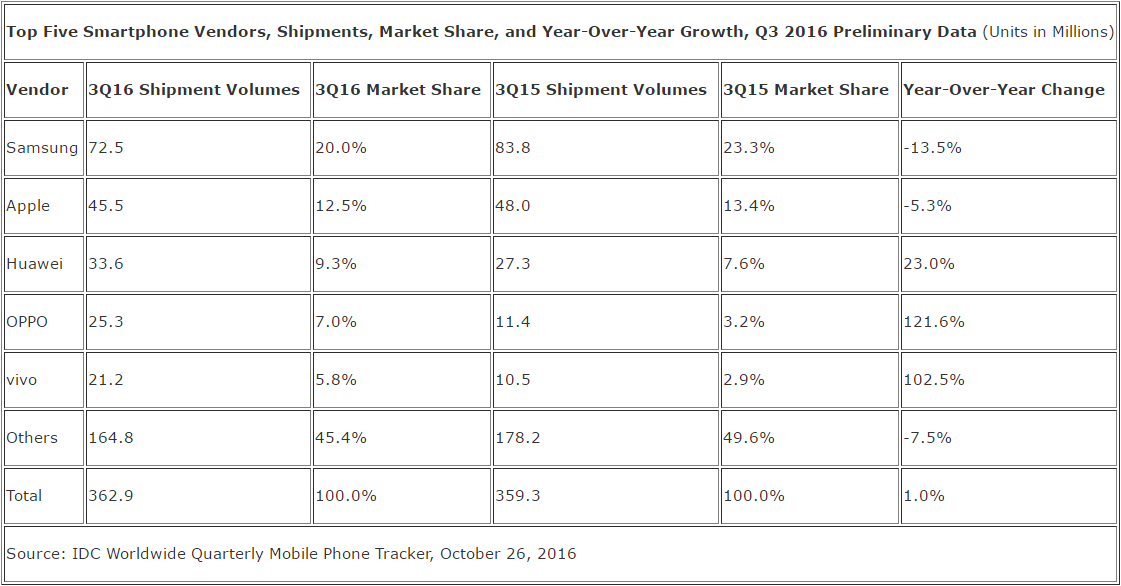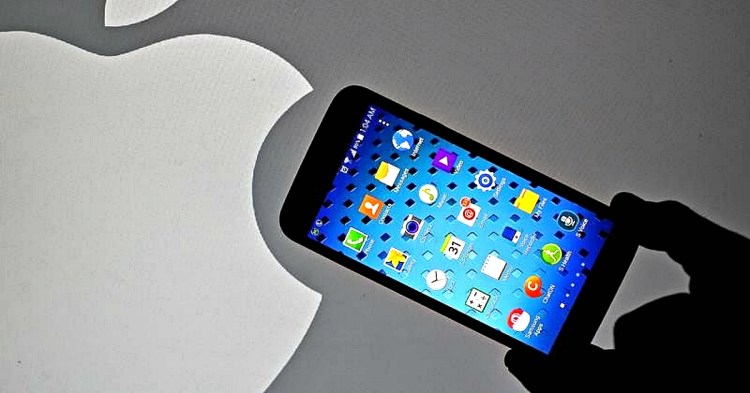Smartphone vendors shipped a total of 362.9 million smartphones worldwide last quarter. This figure is up 1.0 percent from the 359.3 million units in Q3 2015. After two flat quarters in a row, smartphones have seen a slight return to year-over-year growth. It would have been even greater had Samsung not had to recall its Note7 flagship phone.
In Q3 2016, the South Korean company once again shipped more smartphones than any other vendor. But while it previously out-shipped the next two smartphone makers — Apple and Huawei — combined, that lead did not hold this time around. The latest quarterly figures come from IDC, which summarized its findings in the following chart:

As you can see above, Samsung’s market share fell 3.3 percentage points (from 23.3 percent to 20.0 percent) as it shipped 11.3 million fewer smartphones (72.5 million). Every quarter, Samsung owns about a fifth of the market, and this time it just barely held on. IDC believes the success of the Galaxy S7 and Galaxy S7 Edge helped maintain volumes despite the Note7 fiasco (the totals above exclude recalled and unsold Note7s). Samsung’s more affordable J Series continued to perform well in both developed and emerging markets.
“Samsung’s market dominance in the third quarter was unchallenged in the short term even with this high-profile Galaxy Note7 recall, but the longer-term impact on the Samsung brand remains to be seen,” IDC associate research director Melissa Chau said in a statement. “If the first recall was a stumble for Samsung, the second recall of replacement devices face-planted the Note series. In a market that is otherwise maturing, Christmas has come early for vendors looking to capitalize with large-screened flagship alternatives, like the Apple iPhone 7 Plus and Google Pixel.”
Apple, meanwhile, slipped 0.9 points (to 12.5 percent), marking the third year-over-year decline for the company’s smartphone sales. Put another way, Apple isn’t benefiting much from Samsung’s woes, at least not right now.
Huawei grabbed 1.7 points (to 9.3 percent), Oppo jumped 3.8 points (to 7.0 percent), and Vivo gained 2.9 points (to 5.8 percent). While the Android and iOS duopoly doesn’t look like it’s going away anytime soon, the Samsung-Apple duopoly is continuing to erode.
Chinese brands Oppo and Vivo, which this year pushed out previous fourth- and fifth-place players Lenovo and Xiaomi, appear to be here to stay. China’s smartphone market is starting to mature, and these players are already looking to the worldwide stage. Their value-packed devices offer the latest features at a fraction of the cost, compared to market leaders Samsung and Apple.
VentureBeat's mission is to be a digital town square for technical decision-makers to gain knowledge about transformative enterprise technology and transact. Learn More

